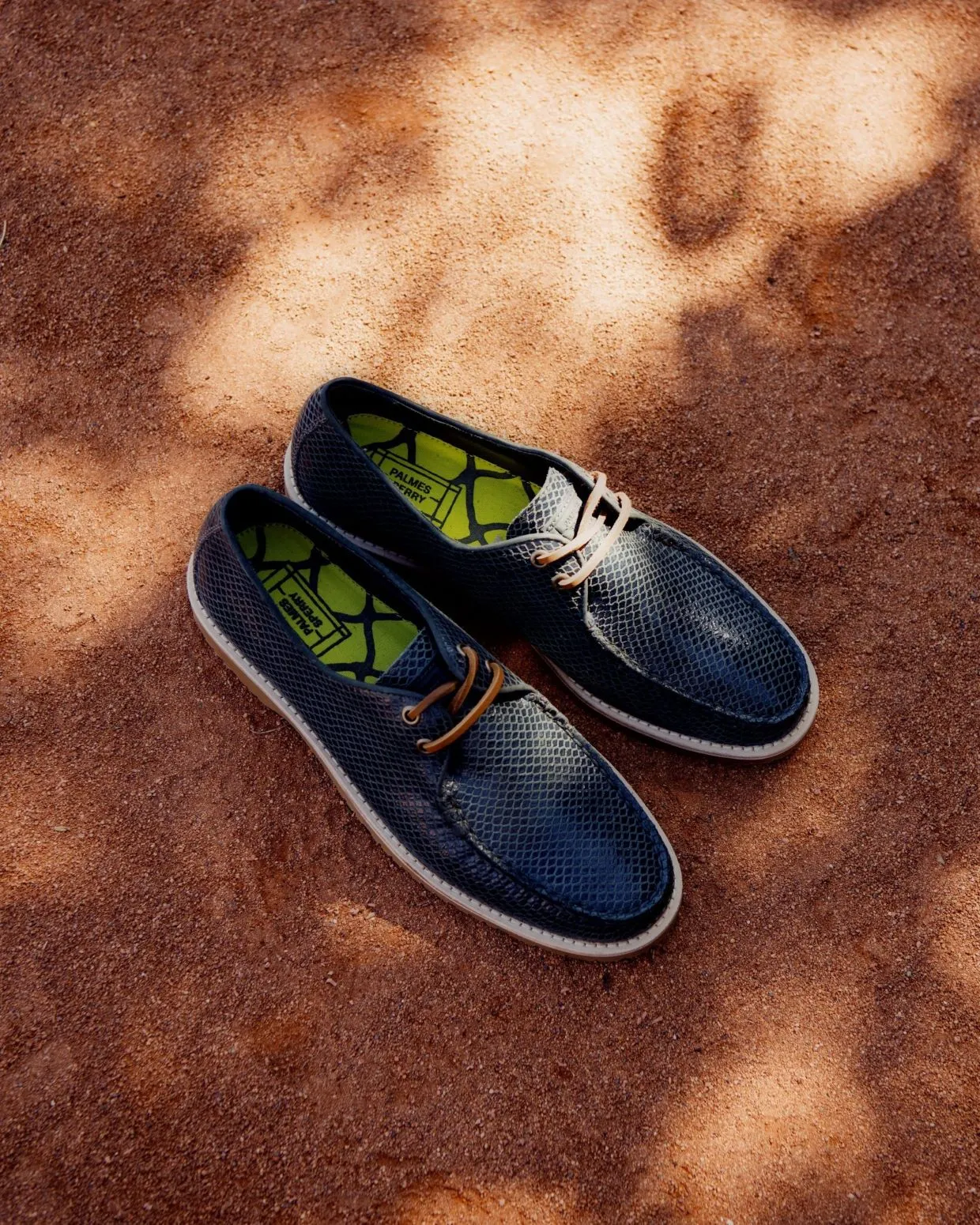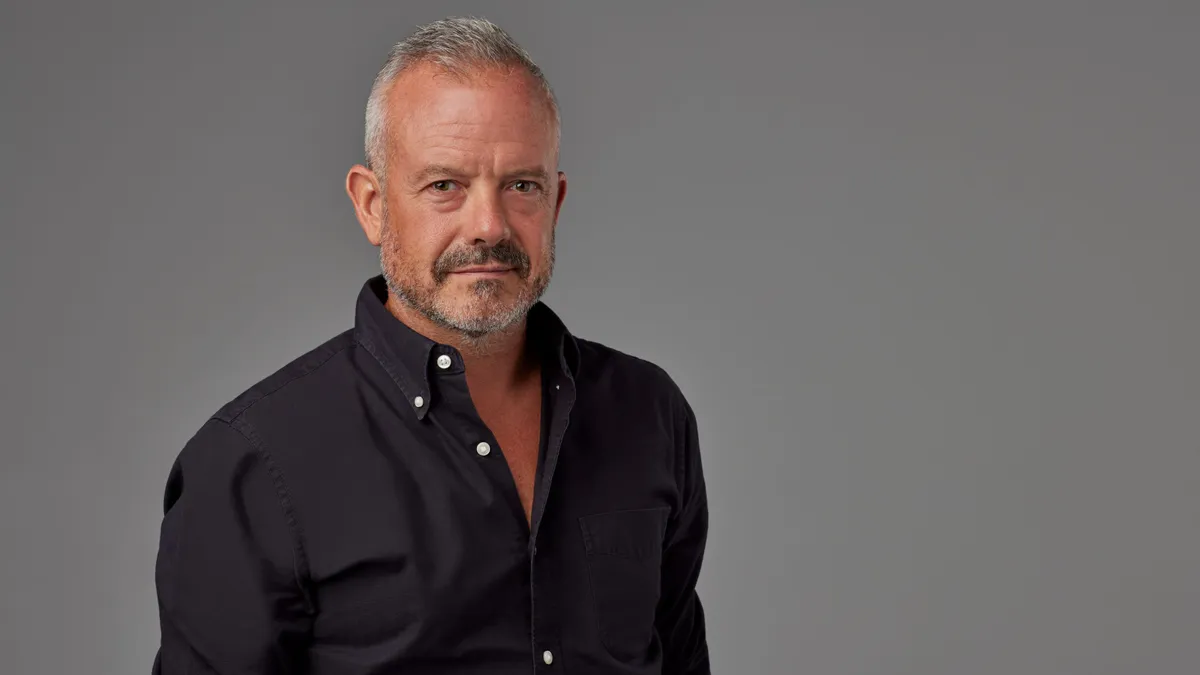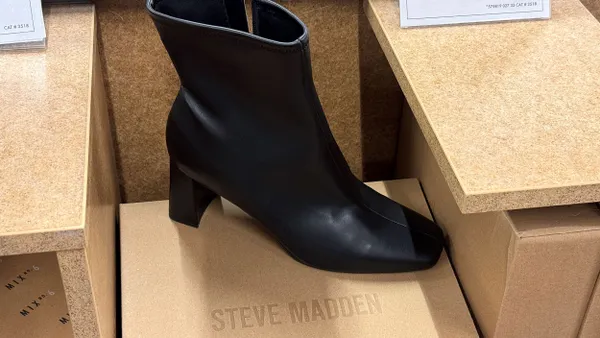In January, Wolverine World Wide sold the 90-year-old heritage footwear brand Sperry to Authentic Brands Group, and Aldo Group took over the license for Sperry North America shortly afterward.
Jonathan Frankel, president of Aldo product services, a division of the Aldo Group, and president of Sperry brand North America, said he’s worked with Authentic Brands Group since it acquired Ted Baker in 2022. In addition to its Ted Baker licenses, Aldo has license agreements with Authentic-owned brands Brooks Brothers, Roxy, Hunter and now, Sperry.
“We basically do everything for the operations of the trademark Sperry brand in North America,” Frankel said in an interview. “Authentic owns the entity in terms of the trademark and the intellectual property, but Aldo Group, through the licensing agreement, is basically driving the car and building that car to make sure that it’s everything it needs to be to fly down the highway in the U.S.”
Frankel’s company also manages collaborations, which have also become a large part of the Sperry business model, particularly over the past year. During New York Fashion Week’s spring-summer shows this month, Sperry appeared on the runways of Monse and Collina Strada. The brand also announced a new collaboration with Florida-based retailer Fresh Rags.
Previously, Aldo Group has operated license deals with companies including Rachel Zoe and Opening Ceremony, but Frankel said his firm is only working with Authentic at the moment.
“We were really learning in our first chapter of our licensing journey,” Frankel said. “Once we found we had a really good, stable distribution network, client relationships and a foundation from an operational point of view, we knew it was time to find some much bigger licenses and opportunities like we [have] with Authentic.”
Frankel said that while there are “good days and bad days and good seasons and bad seasons,” there’s a lot of trust between the two companies.
“When you’re working in that kind of a strategic alliance, we can both date other entities, and ABG does, but it allows [Aldo Group] to get really good at working with one major partner,” Frankel said. “And when [Authentic] finds new deals that they think would be a good fit for us, we’re their first phone call.”
Editor’s note: This interview has been edited for brevity and clarity.
FASHION DIVE: What have you learned about licensing?
JONATHAN FRANKEL: I learned that you have to have really open, transparent conversations at the beginning. Make sure you’re well-aligned in expectations on revenue, distribution, and making sure that there’s good governance in terms of how the brand is being fostered outside of what we’re managing.
The approval process is based on trust and transparency. Sometimes it can be very lethargic. Footwear is already a very slow process in comparison to cut and sew, so you really have to make sure that you’re finely tuned in terms of the management roles and responsibilities.
In [our] initial licenses and partnerships, there’s been varying degrees of success and failure on a lot of those points. We learned some really valuable lessons on what needed to be true in order to be successful in managing a license and meeting our commercial obligations. If we started out as a four out of 10, I give ourselves an eight and a half or a nine in 10 now. But we're still learning.
What is it you’re still trying to figure out?
Nothing’s a guarantee. You can have a great brand and great product, but at the end of the day, you’ve got one of three ways to bring it to life and bring it to a consumer. One is you open retail stores, which has its own bag of tricks and risks and opportunities. The other is your own e-commerce site. The third is through a wholesale strategic alliance or partnership with a third-party retailer.
We’ve always believed in strategic partnerships and being a bit more surgical when it comes to wholesale, but there’s a lot of things you don’t control. You’re selling to an independent business that has its own strengths and weaknesses, and its own challenges and opportunities and other priorities. So there’s a dance you need to figure out to be able to commercialize the opportunity. I would say that’s probably more of a journey. I don’t know if you ever really achieve a 10 in 10 there, but that’s really where the rubber hits the road.
We’ve really landed on our feet with the partners that we are relaunching the [Sperry] brand with, but it doesn’t always go that easy. Sometimes the license you’ve signed has more competition that’s ready to fend off their turf, and it’s always about stealing someone’s lunch. Right now, it’s one retailer stealing market share from another, and one vendor or brand stealing open-to-buy from another. It's a bit of an all-out war out there. But, you know, hopefully you can do it in a friendly way.
How do you choose Sperry’s collaborators?
You have to understand what your brand is about and what your aspirations are. Then you have to respect and like who you want to collaborate with. There’s a million great brands and partnerships that you could go out and find. But at the end of the day, for that brief moment of the collaboration, you truly are getting married, and you need to have faith that each one of you is going to operate their side of the marriage and their side of the engagement equally and in an honest way.
The main reason you do collaborations is to be a better self, to be a better brand, to work with other people and other creatives that can just teach you to do things in a different way and open your ideas and your horizons. But you really have to trust each other, because when you collaborate with someone, if it's equal, you give them the permission to play with what’s most sacred, which is your brand, your trademark, your name, your reputation.
What makes a good collaboration?
Trust is one of the big ones, because you have to trust each other in the process, the creative process. Trust how one is going to activate an idea, and one is going to design and develop an idea. Trust in the conversation, that there’s always good intent and that differences of opinion can bring together something really magical.
Integrity is important, because you have to have the intent of giving everything to be successful. You can’t be half married. You’ve got to commit to it and have integrity that you’re going to follow through and bring it to fruition.
And there’s got to be commitment. It’s all fine and dandy to have great marketing ideas and great boardroom meetings and great creative meetings. But execution is everything, and you’ve got to have that commitment to follow through, and on each side of the coin, make it all it can be.

If you can, as a brand, achieve those three things you’re going to be in a really great spot. I think, if you’re honest with yourself, and you find there’s certain things that are being forced or not lived up to, it’s pretty evident. Those are the collaborations which never reach their full potential.
What makes a bad collaboration?
I’ve seen a lot of collaborations where you can really see that someone paid to play in that collaboration, and it basically just gets a bit forced. It doesn’t seem symbiotic. It doesn’t seem that there’s a mutual interest in activating the collaboration. It seems very much like, ‘I want to use you to get more exposure. I want to use you to reach a different crowd.’ And they’re not doing it in an authentic way. They’re not doing it in a way where they’re able to bring what their brand stands for to the partnership. You see that a lot in the partnerships that social media and influencers generate right now. It’s probably the most bastardized extension of it, where they’ve got a megaphone, they’ve got an audience, and if you write a check, they’ll talk about you. That’s a collaboration gone wrong. It’s hollow. It doesn't really mean anything.
Talk about the Sperry brand relaunch.
We view 2024 as a transition year. All of the platforms, the business relationships, the product, inventory operations, from Wolverine group through to Aldo group, it’s a bumpy year. That’s always the case when you’re transitioning a big business. Then spring ’25 is our first collection.
We used to have a great expression in the action sport industry called ‘respect the revolutionary,’ which were those who came before you and the ideas that came before you. And there’s a lot of that with Sperry, and you don’t get the right to touch that. You’re just fostering it and helping it continue. And if you do that properly, it gives you the right to play with newness. It’s got to make sense, and it’s got to be contemporary, modern, fresh. But they can’t be forced. And when you have a good team in place, you can talk about yesterday, but you can also talk about tomorrow, and that’s often what bridges the gaps between older and younger consumers.











